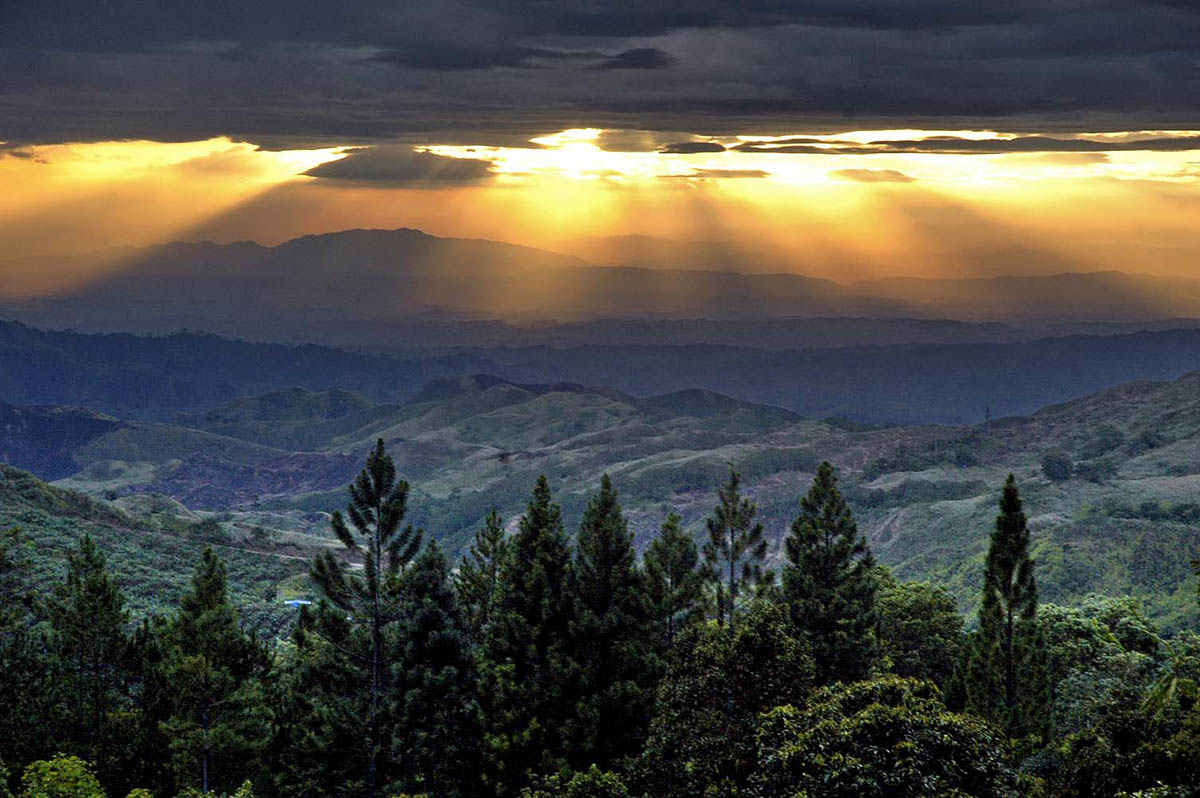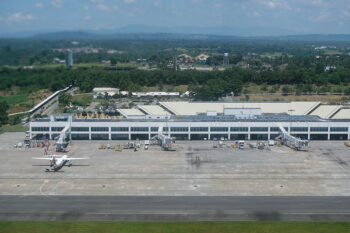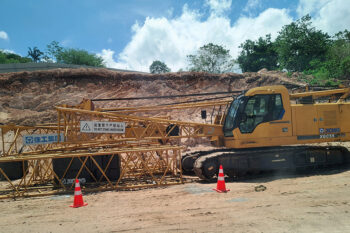CAGAYAN DE ORO CITY (MindaNews / 30 May) — The Church’s celebration of the Pentecost Sunday is a unique opportunity to revisit our theology of the Spirit. The English word “spirit” came from the Hebrew word ruah (from the verbal root rwh), whose original meaning in ancient Semitic languages was not wind or breath but “the atmospheric space between heaven and earth, which may be calm or agitated.”[1] Along this line, French theologian Yves Congar pointed out that in biblical usage, the word “pneuma” refers to “the living and generating substance that is diffused in animals, plants and all things.”[2] In any case, the etymologies and root metaphors of “spirit” have cosmic relevance.
The emerging ecological theology invites us to rediscover the cosmic presence and activity of the Spirit in the natural world. To do this, we need to retrieve the cosmic activity of the Spirit as suggested in the Genesis creation story: “a wind from God [that] swept over the face of the waters” (Gen 1:2). Subsequently, the description “wind from God” implies that “the Spirit of God” is at work in creation, “fills the world” (Wisdom 1:7) and exists “in all things” (Wisdom 12:1). The Earth, therefore, is a living planet because the Spirit penetrates it, in the same way that the soul enlivens the whole body.
Spirit as Creator and Giver of Life
Significantly, the biblical metaphor of breath or wind from God reminds us of the two important roles of the Spirit as creator and giver of life. As creator, the Spirit is often associated with the maternal function of giving birth to creation., which is responsible for initiating from within the newness and renewal of all things. The creator Spirit is responsible for creating the differences and complexities and actualizing the communion of all created beings.[3]

As giver of life, the Spirit is described by the biblical revelation as that “wind from God” that sustains the breath of every living creature. The Lord “blew into [the man’s] nostrils the breath of life, and the man became a living being” (Gen 2:7). As the Book of Job declares, “The spirit of God has made me, and the breath of the Almighty gives me life” (job 33:4). The Lord said to the dry bones, “I will make breath enter you so you may come to life” (Ezekiel 37:5-6). St. Paul reaffirmed that the Spirit “will give life to your mortal bodies” (Rom 8:11). All these imply that living creatures are continually breathing because of the Creator Spirit—the common breath of the Father and the Son.
Spirit as Energy
The new cosmological theory describes that before the start of space and time, that is, before anything else, there was a “boundless ocean of seething energy.” Ecological theologians call this Spirit. Thus, they highlight the view that the Creator Spirit is the “energy-giving reality” and the “driving force of the cosmogenic process” that animates the cosmos and enables from within the existence, evolution, and flourishing of the universe of creatures.[4] In this light, the best metaphor to describe the presence of the Spirit in creation is “energy of nature” that manifests as wind, breath, storm, upheaval.
It is not accurate to say that “spirit” is the opposite of matter or body. In fact, the body is the Spirit’s place of action, its temple. Albert Einstein showed that matter and energy are one and the same. In the language of quantum physics, “the universe is not made of things, but of networks of vibratory energy, emerging from something still more profound and subtle” (W. Heisenberg). The spirit remains in the cosmos permanently to serve as the divine immanent power of continuing creation.
The Spirit Journeys with Creation
Although the Spirit is not a product of an evolutionary process, it reveals itself in the various stages of cosmic history and in evolution of particular forms of life (e.g., bacteria, the plants, the animals, and the human beings) until it reaches its highest expression: the divine Spirit.[5] Christian faith teaches that the Holy Spirit “proceeds from the Father and the Son, who with the Father and the Son is adored and glorified” (Nicene Creed).
It is worth noting that the omnipresent divine Spirit, who accompanies creation throughout the cosmogenic process, freely shares with the cost and travail of the evolving world. The indwelling Spirit is radically relational and infinitely compassionate. Thus, it does not stand at the neutral space but perpetually shares in the “ups” and “downs” of creation. In effect, an ecological theologian could claim that the Spirit “rejoices with creation, suffers with it, groans along with the other creatures awaiting redemption and liberation.”[6] In the words of Australian theologian Denis Edwards, “The Creator Spirit is with creatures in their finitude, death and incompletion, holding each in redemptive love, and is in some way already drawing each into unforeseeable eschatological future in the divine life.”[7]
“Come, Holy Spirit, Creator blest,
and in our souls take up Thy rest;
come with Thy grace and heavenly aid
to fill the hearts which Thou hast made.”[8]
[MindaViews is the opinion section of MindaNews. Reynaldo D. Raluto is a Roman Catholic priest of the Diocese of Malaybalay. He is the Academic Dean of St. John Vianney Theological Seminary in Cagayan de Oro where he also teaches fundamental/systematic theology and Catholic social teaching. He is the author of Poverty and Ecology at the Crossroads: An Ecological Theology of Liberation in the Philippine Context (Quezon City: Ateneo de Manila University Press, 2015). His ecological advocacy includes planting/growing Philippine native trees, mountain climbing, and defending the rights of Indigenous Peoples.]
[1] Leonardo Boff, Come, Holy Spirit: Inner Fire, Giver of Life, and Comforter of the Poor (Maryknoll, New York: Orbis, 2015), 52
[2] Yves Congar, I believe in the Holy Spirit, vol. 1, translated by David Smith (New York: Seabury Press, 1983), 3.
[3] Leonardo Boff, Cry of the Earth, Cry of the Poor, translated by Phillip Berryman (New York: Orbis Books, 1995/1997), 167
[4] Ibid, 159, 169.
[5] Ibid, 160.
[6] Ibid, 169.
[7] Denis Edwards, “Every Sparrow that Falls to the Ground: The Cost of Evolution and the Christ-Event,” Ecotheology 11 (2006): 103-23, on p. 115.
[8] From a Latin Hymn Veni Creator Spiritus attributed to Rabanus Maurus (784-856), which is sung at Vespers in the Divine Office.







